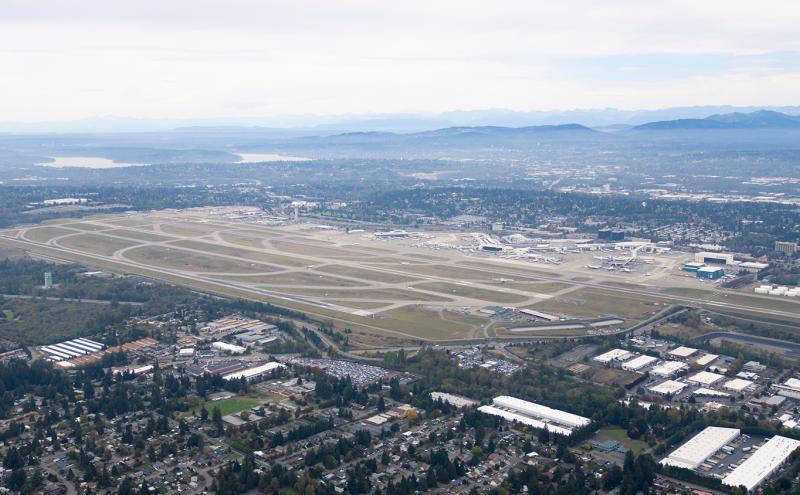
SEATTLE – As part of the Port’s ongoing efforts to make Seattle-Tacoma International Airport (SEA) a world-class place for employment, the Port of Seattle Commission approved two major steps toward increasing accessible, affordable, and flexible childcare services for airport workers yesterday. In the immediate term, the Port will create a Childcare Navigator Program offering comprehensive, culturally, and linguistically appropriate services to help interested workers navigate the existing childcare ecosystem. Second, as part of the Port’s goal to site a childcare facility at or near the airport, the Commission directed the development of a feasibility study that will provide the necessary information to make this vision a reality.
Childcare is one of many topics that Commissioners have been examining as a way to improve the airport workforce experience, in addition to a pilot program to increase access to transit passes and exploration of healthcare insurance for SEA workers. This latest move on childcare follows last year’s Port study, which found that 90% of employers noted employees’ concerns related to reliable childcare as having an impact on their company’s bottom lines.
“As a parent, I am so proud to be moving this effort on childcare access forward in the coming year,” said Port of Seattle Commission President Toshiko Hasegawa. “We’re doing the hard, yet important work of understanding the challenges that face workers at our Port facilities, and we’re learning so much in the process. I look forward to seeing what the feasibility study teaches us about our goal to establish a childcare facility for SEA workers and community members. I’m proud the Port is working towards comprehensive solutions to answer our region’s childcare crisis.”
The unique nature of operating a 24/7 facility like SEA, overall childcare cost, and lack of nearby childcare centers were all found to be barriers to employees in the Port’s study. Of the top 10 zip codes where SEA workers live, 100% of those were found to be extreme childcare access deserts. With this in mind, the study made several recommendations for further investigation. Commission has set aside a portion of the 2025 budget to pursue two of those recommendations, both of which have different degrees of difficulty and timelines. Today’s order officially initiates that work.
Childcare Center Feasibility Study
The feasibility study will look at what it would take to develop a Port Child Care Center or set of centers close to SEA for the explicit needs of airport workers. Importantly, the study will provide additional information on the actual demand for these services at SEA, including the impact of lack of accessible childcare on airport employers’ ability to attract and retain qualified workers.
The study must:
- Collect more data from employers and employees at SEA
- Examine operational and financial models for how a fully licensed center could be delivered
- Provide a detailed breakdown of key Washington state requirements for such facilities
- Scope out best practices from other airports
- Research partner, vendor, and funding opportunities
Childcare Navigator Program
The navigator program is meant to aid workers in finding available childcare solutions and may include:
- A centralized hub that provides comprehensive and personalized assistance including in-language support
- Assisting workers in navigating conveniently located childcare facilities, financial assistance, and completing enrollment
- Educational outreach on what support programs are available to workers, and additional efforts to leverage existing state and local programs
- Any additional work that supports continued worker employment
A broader issue
The Port’s initial findings showing that childcare is important to ensuring a robust workforce are consistent with other studies, including a 2021 Washington STEM report created for King County and a 2019 report by the Washington State Child Care Collaborative Task Force, which included the Department of Commerce. Demand for childcare far outpaces the supply of quality affordable care. The severe lack of options impacts caregivers’ ability to accept, stay, or advance in their career. The Port remains committed to examining creative solutions to this statewide and nationwide issue, building upon its track record of being a resilient organization that advances economic opportunities and quality of life in the region.
Contact
Kassie McKnight-Xi | SEA Airport
[email protected]

